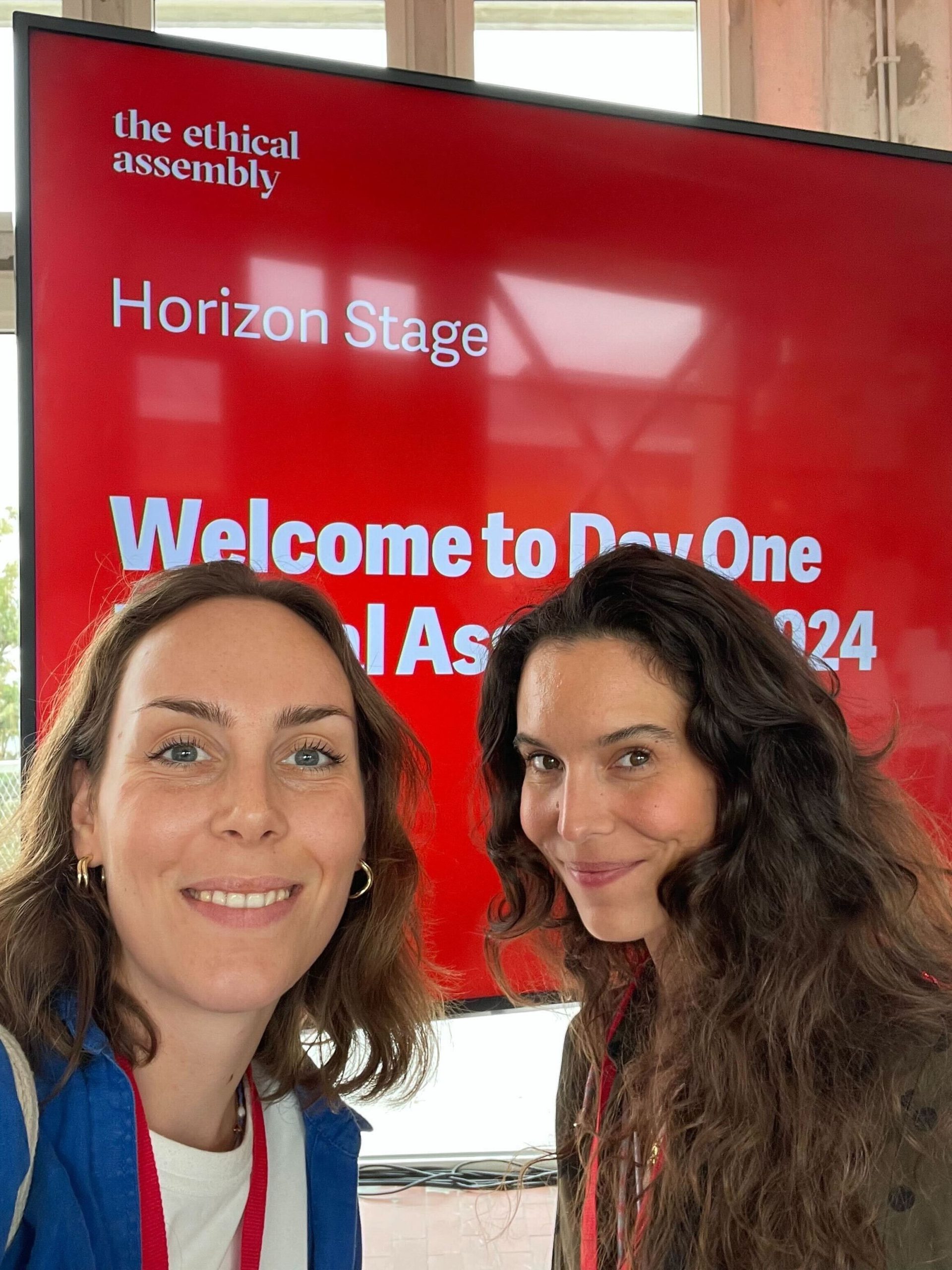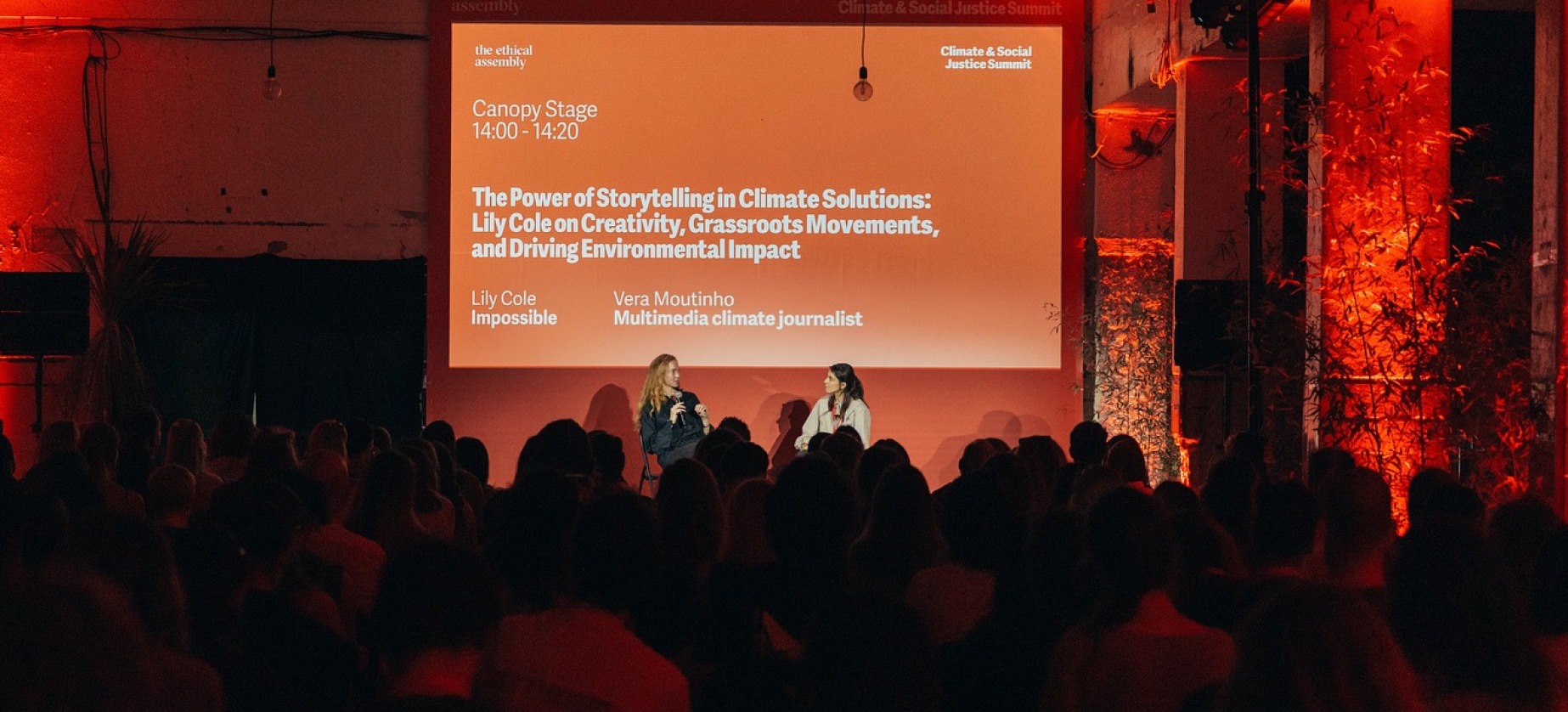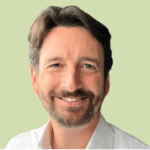Sustainability and ethical causes have played a big role in my life. I was raised to prioritise these values, always aiming at making better choices. But as I got older, I realised how people who, like myself, had the privilege to make sustainable choices, would not often make them their first pick. This realisation inspired me to take action — not only to secure a sustainable future for myself personally, but also to contribute to a better world for others.
Before sustainability became a buzzword, I launched a small startup with friends while I was studying at the University of Mannheim, Germany. To make people more aware of all the sustainable businesses around them, we would offer free or discounted vouchers for them to discover different sustainable markets, restaurant, bars or cafés around the city. Then, when I moved to Lisbon for my masters in Communications, in 2019, I focused my studies on Sustainability & CSR. That was also the first time I stumbled upon a bold red poster announcing the The Ethical Assembly.
This yearly climate and social justice summit in Lisbon aims to open the conversation around climate and social issues to the public. By making it accessible to almost everyone, the organisation’s goal is to get more people involved and aware of these issues. For that they offer a wide range of activities—from panel discussions, workshops and art exhibitions to networking sessions. You can read their full manifesto on the website.
The experience was transformative. It motivated me to continue pursuing a more sustainable path, and it even inspired my work for years. Fast forward to 2023, and when Rydoo started its Sustainability Project, I immediately knew I wanted to be involved in helping reduce our carbon emissions and work on our ESG (Environment, Social and Governance) efforts.

And what would you know? One day, walking to Rydoo’s office, I spotted another of those big red posters announcing the 2024 Ethical Assembly. I knew I had to attend, not just for myself, but also to bring valuable insights to share with our team.
But I did not go alone. Margarida Freitas, our office manager, tagged along, as she shares my interest in sustainable practices and how they can be implemented in workplaces.
Here is a quick summary of everything me and Margarida learned.
Achieving climate goals goes beyond social action
Ben Backwell (Global Wind Energy Council), Andreia dos Santos Fernandes (EIT InnoEnergy), and Isabel Cancela de Abreu (Associação Lusófona de Energias Renováveis) hosted the Beyond Fossil Fuels: Charting the Course for Deep Decarbonisation, where they discussed the impact of fossil fuels and how to pave the way to decarbonisation.
During the discussion, the panelists mentioned how it is a privilege to be able to work towards climate goals. However, they emphasised that a big portion of global funds is being used towards machinery and weapons production, all made of non-renewable sources. This means that, although efforts are underway across the globe, deep decarbonisation cannot be achieved without world peace.
Data democratisation is crucial to a sustainable future
Susana Romão from Vizzuality opened the event with the Shaping Sustainable Futures Through Data and Technology’ talk, all about the impact of data and technology on sustainability. She shared how she believes companies should share data as an act of generosity and as a global, inclusive good to sustain innovation. Open data perception can be different, depending on one’s cultural and geographical mindset.
Susana also stated that to unlock the power of data, you must filter and translate it into accessible information. That is the only way data becomes knowledge. We also learned that the way we store our data is not sustainable, and more solutions need to be found to tackle this issue.
One way to do this would be through data democratisation and accessibility. Accessing data is not as straightforward as it sounds, and it should be as simple as using social media. Susana went as far as suggesting these networks should work together to help build communities and incentivise citizen action.
Change can happen, as long as we take that step
Kat Hamilton (Force of Nature), Lauren Foley (SheDecides), Andreas Noe (The Trash Traveler), and Carolina Salgueiro Pereira (Human Impact Lab) joined the stage for the Bridging Climate Action and Social Equity: An Intersectional Approach talk, where they focused on the social side of fighting climate change and social discrepancies.
The speakers shared that inclusion is not equity, so it’s up to each of us to make the effort to break these bubbles. We must reinforce collaboration, give accessibility to a climate space and create climate-led solutions — such as the Ethical Assembly!
Attending the Ethical Assembly was truly inspiring and showed how, to make a real difference in the world, you need to take that first step. But if there’s something we learned during this event is that, while individual actions count, the bigger the group, the higher the impact.
Companies have a big role to play in sustainable efforts. At Rydoo, we’re working on multiple initiatives that we believe will impact not just our team, but also the world around us. Inspired by this, we took our learnings to our ESG stakeholders and discussed how we could turn these ideas into actions.
Diversity and inclusion are a part of our core values, and we’ve taken some meaningful steps so that everyone feels welcome, whoever they wish to be. From introducing dedicated prayer rooms, adopting gender-neutral pronouns in most of our communications and making all our office bathrooms gender-neutral, our goal is to make everyone feel comfortable at work.
We’re also all about lifting each other up, either by giving or receiving feedback. That’s why our HR team sends quarterly eNPS surveys to track how happy Rydoo’ers are, how they feel about the company, our journey, and their work.
Our team is also determined to make a real impact on the environment. Every year, we measure our carbon emissions and review our strategies for reducing CO2.
We also continue investing in reforestation programs, which help compensate for some of our emissions while giving back to the community. We do this by supporting ethical projects such as WithOneSeed, a community forestry program in Timor-Leste dedicated to improving communities, making their environments sustainable, ending poverty and hunger, delivering open education and creating regional partners.
Another great achievement was receiving the approval for our Science-Based Targets initiative (SBTi) commitment. As of September 2024, our company is approved for our near-term commitment, which means that, by 2030, Rydoo will do its part to reduce 1.5º Celsius. To achieve this, we will reduce Scope 1 and Scope 2 greenhouse gas (GHG) emissions by 42% from 2021 to 2030 and continue to measure and reduce our Scope 3 emissions.
But we’re not stopping here! Our next goal is to become more engaged with our communities. For that, our teams in Lisbon, Mechelen, and the Philippines are searching for local volunteering initiatives to collaborate with and make a direct impact around our neighbourhoods.
Rydoo’s commitment to sustainability is now. As we continue on this path, we hope to create a future that honours both people and the planet, leading by example for a greener, more equitable world.



